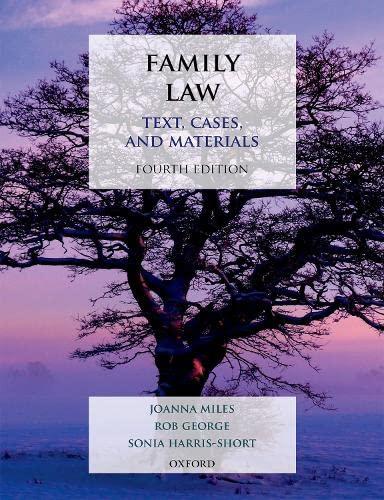Question
Many would argue that the Christian ethical viewpoint is built upon a relationship. In a Christian ethic the individual to God or rather God to
Many would argue that the Christian ethical viewpoint is built upon a relationship. In a Christian ethic the individual to God or rather God to individual relationship then directs one's relation to ethical imperatives, however is this the same thing as what graded absolutism is described as ?
Why or why not ?
What insights do you see ?
Our text discusses "graded absolutism" in relation to a Biblical ethic. Is such an approach necessary ? Does it not undermine universal/absolute truth ?
Is not the particular application of universal principles/ truth simply assumed by the natural constructs of reality. We are unique humans, though we are humans, thus particular beings but also beings belonging to the universal category of human.
Do secular absolute/universal ethics run into tensions in applying absolute truth claims ? Why or why not ?
Can such dilemmas often be explained away as false or inaccurately framed dilemmas ?
Why or why not ?
Step by Step Solution
There are 3 Steps involved in it
Step: 1

Get Instant Access to Expert-Tailored Solutions
See step-by-step solutions with expert insights and AI powered tools for academic success
Step: 2

Step: 3

Ace Your Homework with AI
Get the answers you need in no time with our AI-driven, step-by-step assistance
Get Started


